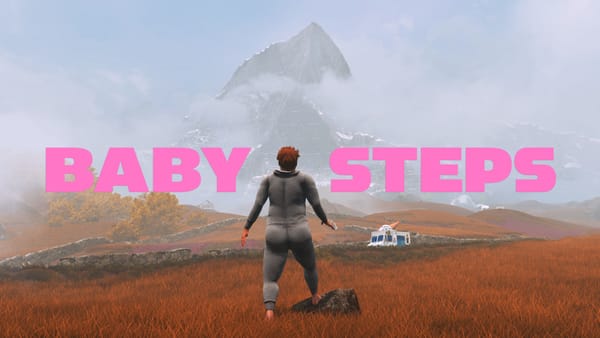Memory Card Special : The FÍS Travelogue : Day Two
The day it’s all been leading up to. I woke up in my customary immense pain and killed time checking my messages until it wore off enough to get up and wash. Laying there at 7am, I was frustrated that I had to start my day so early after travelling so late. I felt equally guilty that I was here complaining about breakfast times when there were people downstairs who had been up since 5am to work at the hotel. As a working class woman on a student budget, I felt out of place staying at the Radisson Red but cutting out travel time and guaranteeing breakfast had made it worth the spending the bulk of TJA’s grant (and my own money) on. After I got moving after 8am, I picked out a skirt and jumper to wear as it was thin enough to not be too stifling down in the hotel’s basement. I hadn’t been able to shave and wish I’d had the time to wash my hair, but I was presentable enough.
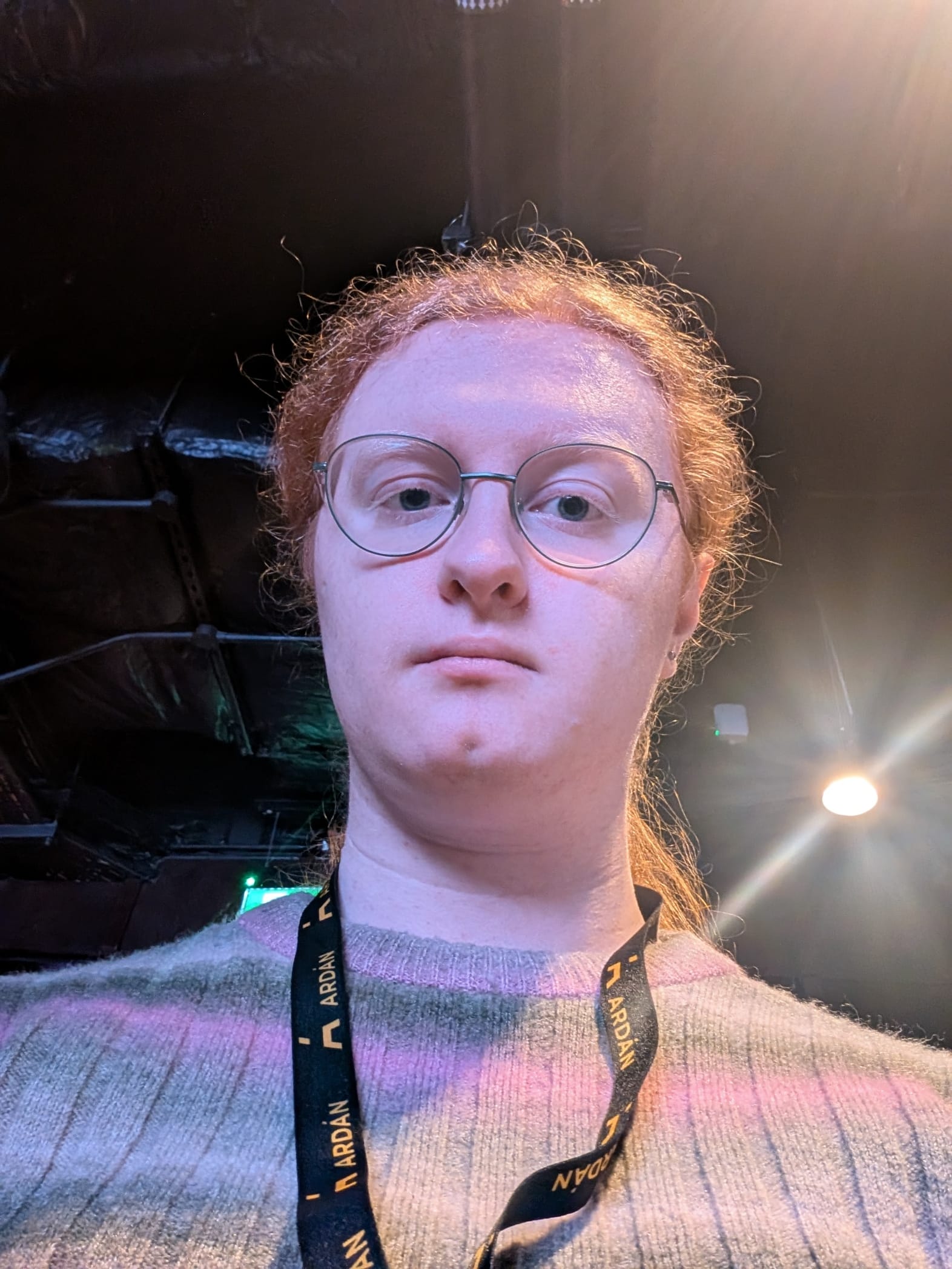
Breakfast was a typical hotel buffet : sausages, eggs, these really lovely sliced black mushrooms covered in seasoning, tiny pastries… I ended up getting down there at 8:40am and only stayed for about 10 minutes so I wouldn’t miss the start of the event. Not sure if the food was worth 15 euros but it definitely wasn’t worth the 20 euros they charge if you don’t book in advance.
I went downstairs to check in and got my guest pass. A speaker had had to cancel the day before, so there was a new timetable for the event that rearranged a few of the talks. I asked if there was a physical copy and was shown one encased in glass. I took a photo. What caught my eye most were the Imirt Awards happening after lunch. They were going to be held in the same room as every other talk, and no-one attending was going to want to miss it, but I made a mental note to plan my day around it just in case.
For the moment, it was a matter of going up to people and starting conversations, which I didn’t have the courage to do. Attendees were 30 years old on average with several years in games work under their belt, even if they were currently between jobs. I love writing, but I didn’t want to start conversations with industry veterans and have to tell them I hadn’t even gotten my foot near the door, let alone in it, before trying to get interviews. So I just milled around, writing some notes down and overhearing some conversations. I heard some talk about AI, as is customary these days, with the sentiment that “the genie’s out of the bottle”, as well as people explaining their roles at their respective companies. It was good to hear developers speak so frankly about what they do.
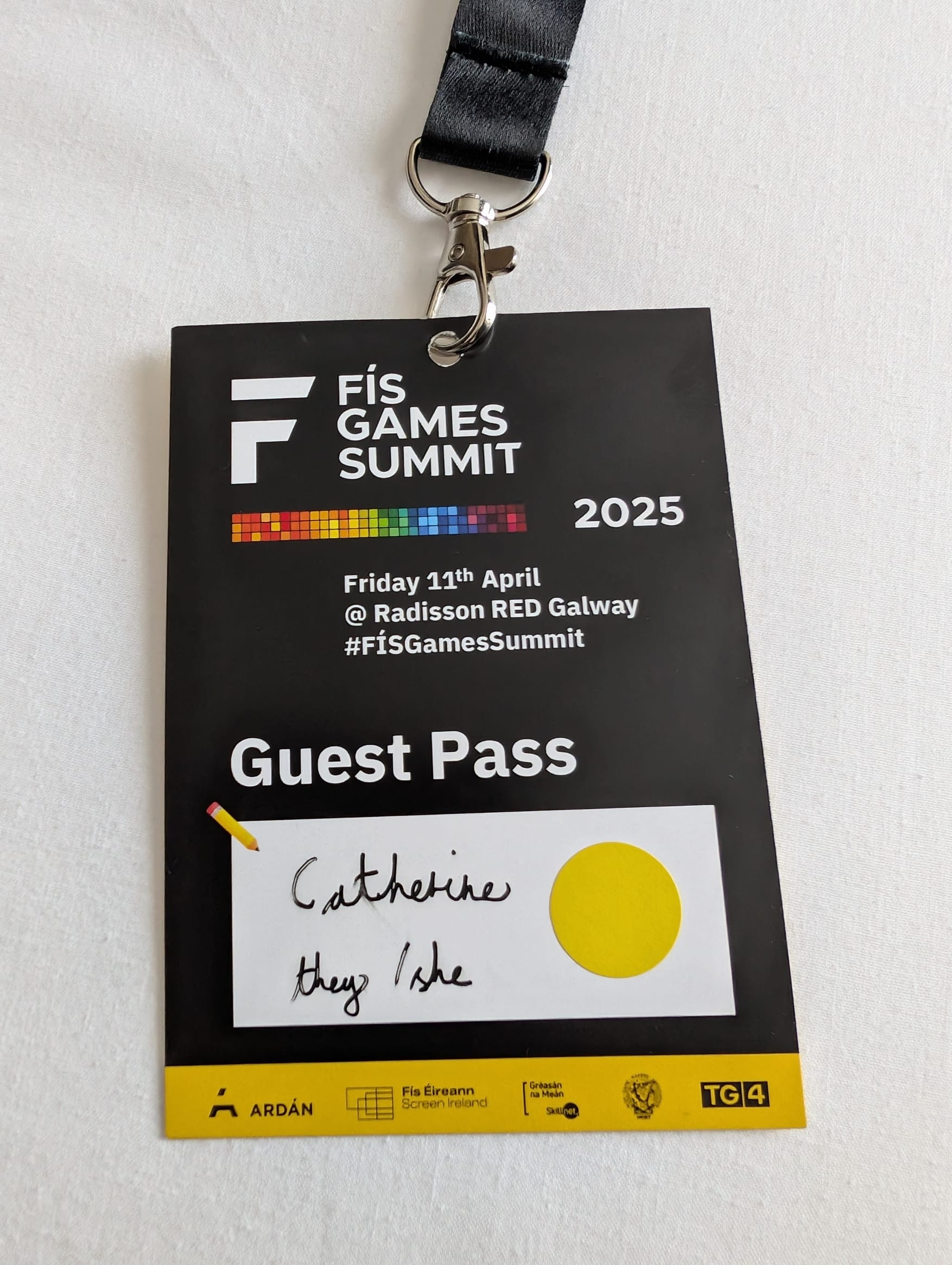
The opening talk from Ardán CEO Alan Duggan wasn’t until 9:45am thanks to the rescheduling, so I had rushed my breakfast just for the chance to pace the conference space. In his speech Duggan talked about the history of FÍS, now in its fifth year, before detailing the broad strokes of the event : fire exits, Gluten Free canapes and the AI subtitles on the teleprompter. The Irish games industry was at an “inflection point” thanks to Screen Ireland (Ireland’s state media development branch) making the sector “swell into a wave” with their funding.
After his speech, event broadcaster Sinéad Ní Uallacháin took the stage to highlight the accessibility roundtable starting in a side room and set up the first talk from Séamus Ó Buadhacháin, senior programmer at Failbetter Games (Fallen London, Sunless Skies). I’m yet to play Fallen London or the other games in its universe, but I have a strong interest in narrative in games so I chose to miss the roundtable and stay put for “Tools, techniques, and tips for delivering branching narrative at scale”. I’m going to cover all of the talks I attended in separate articles so I can give each of them due focus, so look forward to that in the future.
Next up was “Why Do Players Skip Your Story (And How to Make Them Care)?”. I skipped it so I could attend the next roundtable : Networking Session for Developers of Marginalised Genders. It’s a shame that I had to choose between two things I was equally interested in, but an actual networking session was too promising to pass up. I took a look at the cakes that had been put out on the way. They were each emblazoned with a letter from the key companies’ logos : Romero Games, FÍS and Ardán itself, as well as a plain row. I didn’t want to miss the start of the roundtable, so I took a photo and moved on.
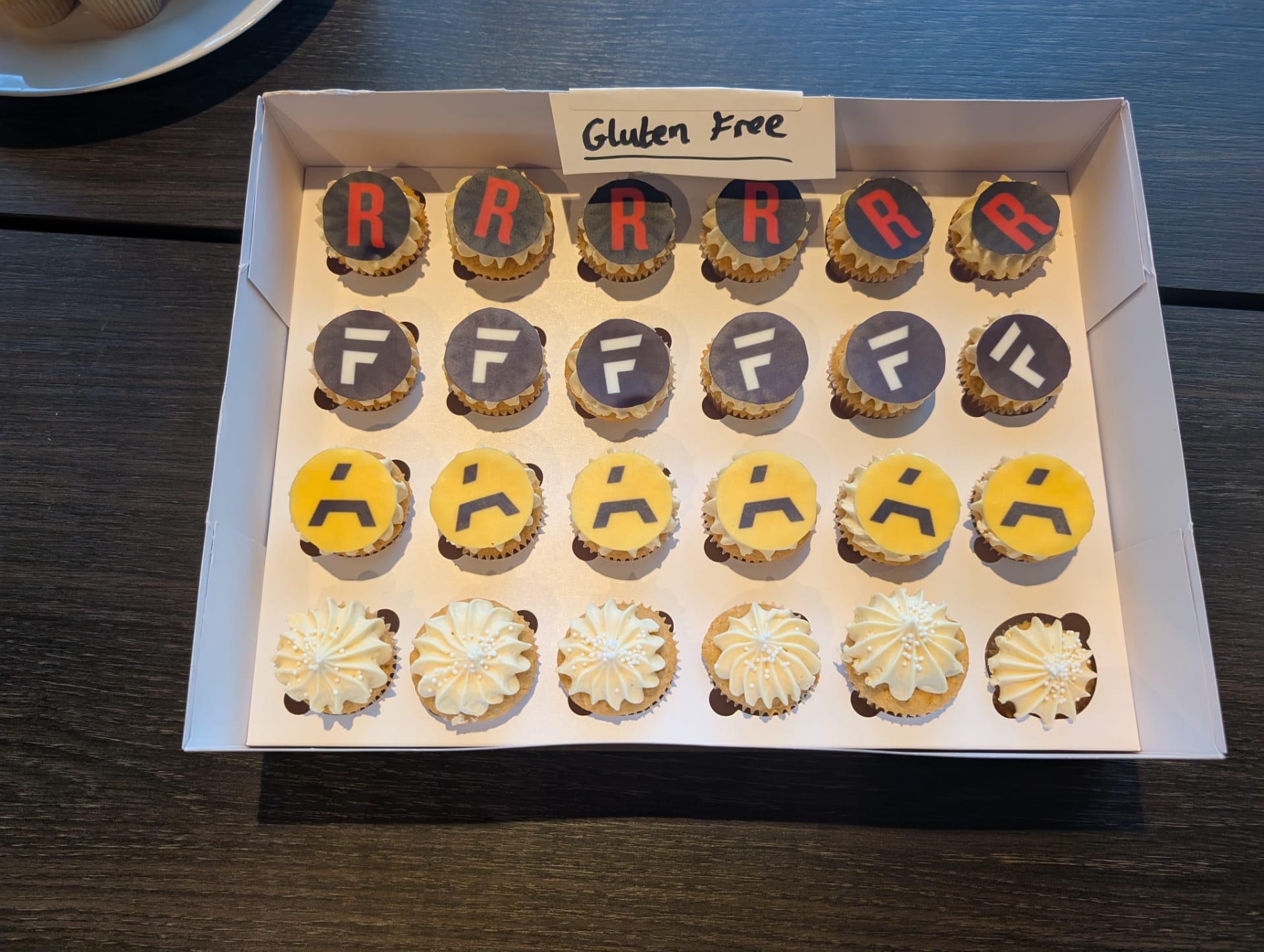
While people were filtering in, I made my journalist status clear to the session’s facilitators and they were fine with it, so long as I didn’t divulge anything confidential about those attending. I would never breach confidentiality, but since introductions took up half of the season, I don’t have too much I can say about it. This isn’t helped by the fact that I had to leave halfway through to take a call with my GP. I didn’t know I’d be in Ireland when I booked it and it was too important to skip, so I huddled in the corner of the event’s reception to take it. There I was, repeating my information over a bad connection to a new GP, while one of the event’s volunteers was snapping social media photos of Xalavier Nelson Jr. the whole time. I hope they didn’t pick up any of my audio when recording some short videos in front of that banner.
By the time I got back to the roundtable, people from all aspects of game development, from 3D Modellers to narrative leads, were talking about the challenges women, non-binary, trans and intersex developers like themselves face in getting into the games industry. Visibility (“see it, be it”) was a key tenet of this, with one woman who often arranged local game jams talking about how the highlight of a recent jam was a 16-year-old girl who had a programmer father. Just being in a space where programming was a known career and something one could get help with from the home had set her on the path to game dev much sooner than most.
Getting into the industry was one thing, but staying in has been difficult for everyone in the past few years. Several people at the roundtable were between industry jobs at the moment, with some pivoting to freelance after recent layoffs. Wage dilution was also a hot topic, with Nintendo’s $80 price tag for Mario Kart World on everyone’s minds. When other companies follow suit, how much more of that money is filtering down to the people actually making the games?
When you are marginalised, it can be hard to know how to get equitable treatment in society, but building community is a good start, be it in person or online. One of the facilitators was Len Cunningham, a committee member of the union Game Workers Unite Ireland. They were keen to remind people of the power of unionization when it came to tackling a lot of the issues brought up. The aforementioned game jams were discussed as a great way to build a diverse development community, so long as those spaces are curated to be inclusive. One jam mentioned had a group of young boys dominating the space and another had people with sensory difficulties struggling in the overwhelmingly loud space, something I was no stranger to that day.
As the roundtable ended and the writing roundtable people waited to come in, we were encouraged to write our names and emails on a bit of paper at the front of the room to connect afterwards. It was to be destroyed under GDPR guidelines, so we also each took a photo once it was full. Before I left, I reached out to Len to see if I could arrange an interview about GWUI. They were game, but busy with the next roundtable, so I said I’d grab them later if I could. I didn’t end up interviewing them, as they were always actively talking to groups of people when I saw them again.
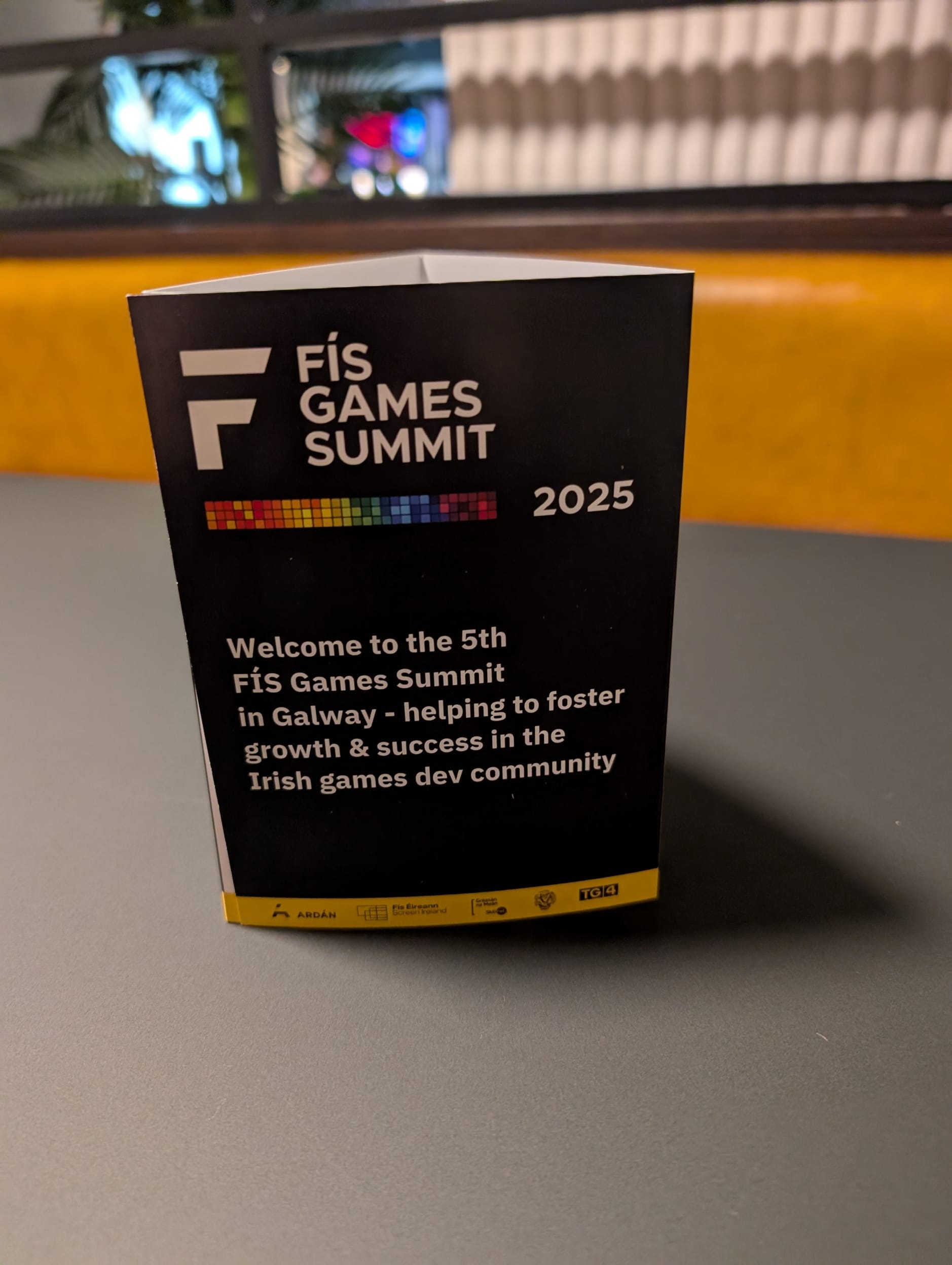
I was pretty aimless after this. The main stage talk on publishing was splitting the audience in half to share their experiences and network and I felt too tired to stay for the writing roundtable. Worst of all, the cakes I’d passed on were gone. In hindsight, I would have been best served staying for the roundtable as the demo room was too packed to get a chance to try anything that hour. I checked back in there every now and then and spent the rest of the time researching Ardán and GWUI on my phone. I also helped a latecomer check in by grabbing the event volunteer I’d seen earlier - turns out her name was Catherine too! I got to tinker with Axyz briefly – a 3D puzzle platformer where you jump around as a marble in a vaporwave world – but it was difficult to play it properly in that environment.
Next up was lunchtime. Everyone queued up from the left side of the room, although some people leaving the main stage late formed a small queue on the right. I spoke to a couple of people in the queue. One was a former games journalist, who had been in development for 8 years. He was keen to talk with some of the Romero Games people who were here so I grabbed a stale egg salad roll and a decent cheese sandwich and we looked out for them. I spoke a bit with a woman from Romero who had sat in on the writing roundtable and talked about what we had each missed so far.. She suggested I try interviewing Mae, Romero Games’ community manager. She had been at my roundtable so I spotted her through the crowd after a few minutes. When she was done talking with some people, I got her attention and she was free to do an interview immediately!
We went upstairs to the hotel lobby and took a seat. I’ve interviewed people before, but I generally had researched the subject better than I had for this impromptu interview. I didn’t even realise that Romero Games had developed Empire of Sin back in 2020, the publisher Paradox drowning it out in my memory, so she had to spell that one out for me. A little out of my depth in the moment, I’m grateful for Maezza’s patience and her professional answers to my questions. I plan to transcribe and touch up the interview when I can, so look forward to that too. Afterwards, Maezza gave me her email in case I needed to follow up on anything and we parted ways. I milled around the demos room until the awards were about to start.
Everyone who was attending FÍS was here. It was wonderful to be in a space packed with people with a shared passion for games, no matter their specialty or seniority. I learned a lot about the Irish games scene during the show : the people everyone seemed to know and just how many games have come out of Ireland since Imirt’s last show in 2022. You can read more about the awards and winners on Imirt’s summary of the show here, but I wanted to note that Amber Isle came away with five awards. Congratulations to Ambertail! Speeches were short, but with plenty of repeat winners, I got to hear all about Steve Bennett’s then-upcoming campaign for an expansion to his tabletop game Dungeons and Naggins. It’s still going at the time of writing and hasn’t quite met its goal, so check it out if you’re a fan.
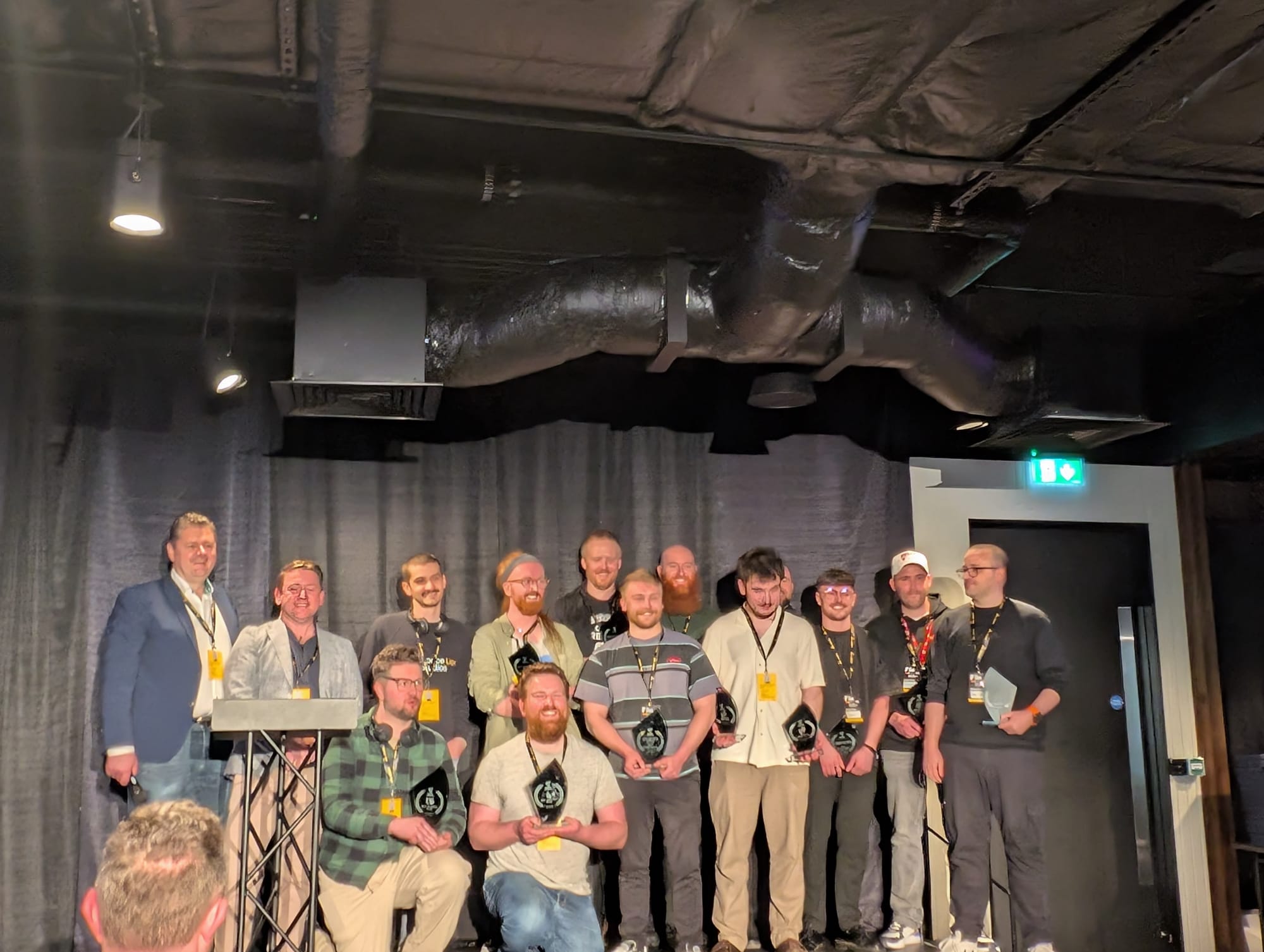
After the awards, Imirt CEO Colm Larkin was joined on stage by Alan Duggan. Together they announced that the IndieDev 2025 fund would be supported by Screen Ireland and allow Imirt and Árdan to invest in Irish game development with €500,000. They will use this to support studios to work on prototypes and run twelve week incubators to support new developers, as well as talent development schemes like workshops and mentorships.
With that, people left the main stage once more. There were pitch development sessions happening with publishers in the side rooms, so I took advantage of lower foot traffic to try out some demos. I had hoped for a second chance on Axyz but thanks to it winning an award earlier, people were flocking to it. Several members of the team were at the event but I also didn’t get the chance to talk to them about the game or success it was having in person.
I was drawn to Wayside (Fogcore Games), a horror game about a university student returning to her hometown after an old friend went missing. It fits in perfectly with the current wave of PS1/2 aesthetic horror games like Crow Country or Beware the Spotlight, with dithered graphics and a strong Silent Hill impression. I did find it difficult to navigate at times, with the critical path often falling to the wayside in favour of wandering about the town and buildings until I triggered the next sequence, but it’s important to remember that this game is very much still in development. It was a recipient of last year’s IndieDev fund and doesn’t have a Steam page or public demo yet, so I imagine it will be some time before it’s out.
Next up, I stole a seat in front of The Seance of Blake Manor (Spooky Doorway). A first-person mystery game, you play the role of a Sherlock-esque character investigating a missing persons case tied to the titular seance. Although I struggle with motion sickness in most first-person games, I made my way through the opening without much trouble. Definitely going to check this one out when it’s out. I especially enjoyed the comic panel cutscene and evocative Mignola-inspired artstyle. I kept playing until there was a five minute warning for the start of Xalavier’s talk, which made everybody stop what they were doing to attend.

I called Xalavier Nelson Jr. an indie game rockstar at the start of this piece and seeing a packed room applauding his entrance after Sinéad introduced him just solidified this impression. I’ll go in depth on his talk another time, but I can give you the broad strokes here. His main argument was that “the “standard” way of making games is failing everyone”, from the publishers and venture capital firms all the way down to the players. To secure funding, developers have to keep overscoping their initial ideas and promising development times that both parties know they can’t keep to. Instead of selling to investor’s Nelson suggests developers force their projects to remain in a small scope, with development times that don’t demand years of their lives working on one idea. The more games you make, the better you get at making games and the results speak for themselves at his studio Strange Scaffold : the studio has released four games in the last year, with another coming in May.
Even though Xalavier spoke faster than the teleprompter could transcribe, there was only time for two questions before Tom Hall’s (Romero Games) talk started. I realise when typing this that the talk’s name “Happy Player and the Philosophy of Dense Fun” is a Harry Potter reference, which explains why he used a still from the second film as the background for his slides. As a trangender woman in the UK, I’m pretty done with Rowling and her works, but it didn’t come up in the talk at all so I’ll happily go into it later too. At the very end of the talk, he whipped out the chainsaw used in Doom’s marketing and took photos with some people. Getting a photo of Tom Hall and Xalavier Nelson Jr. brandishing the Doom chainsaw together made up for every second of trouble I had up until that moment.
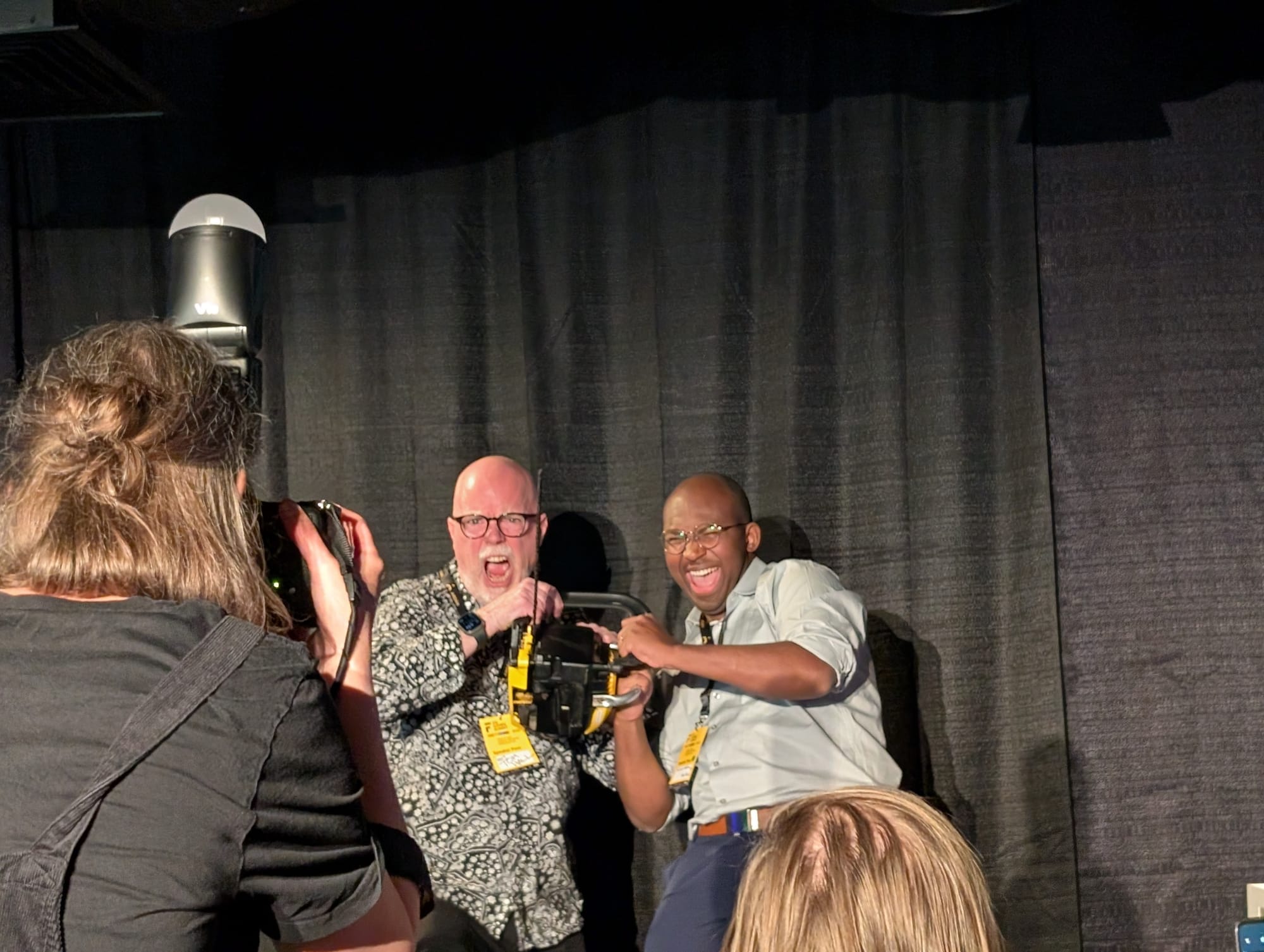
Although the event continued at the hotel’s rooftop bar, I was exhausted and in need of something more substantial than canapes at this point, so I went back to my room. Colm happened to be on the same floor so we spoke briefly, comparing holding the Imirt Awards at FÍS to the IGF awards that take place during GDC. I wanted to double check some details with him, but we were at his door, so he gave me his card. Despite my hesitance to reach out to people, every time I spoke with someone I was never let down.
We don’t need to spend too much time going over the rest of that day. I listened to the latest episode of Aftermath Hours, considered ordering food through room service or Deliveroo, and settled on having a €24 (!) Fish Pie for dinner and a brownie with ice cream for dessert. Don’t worry : I was upsold to a hotel membership so I got 5% off. It was an exhausting day but an immensely rewarding one. I showered and went to bed. (And listened to Espresso again to try getting it out of my head.)
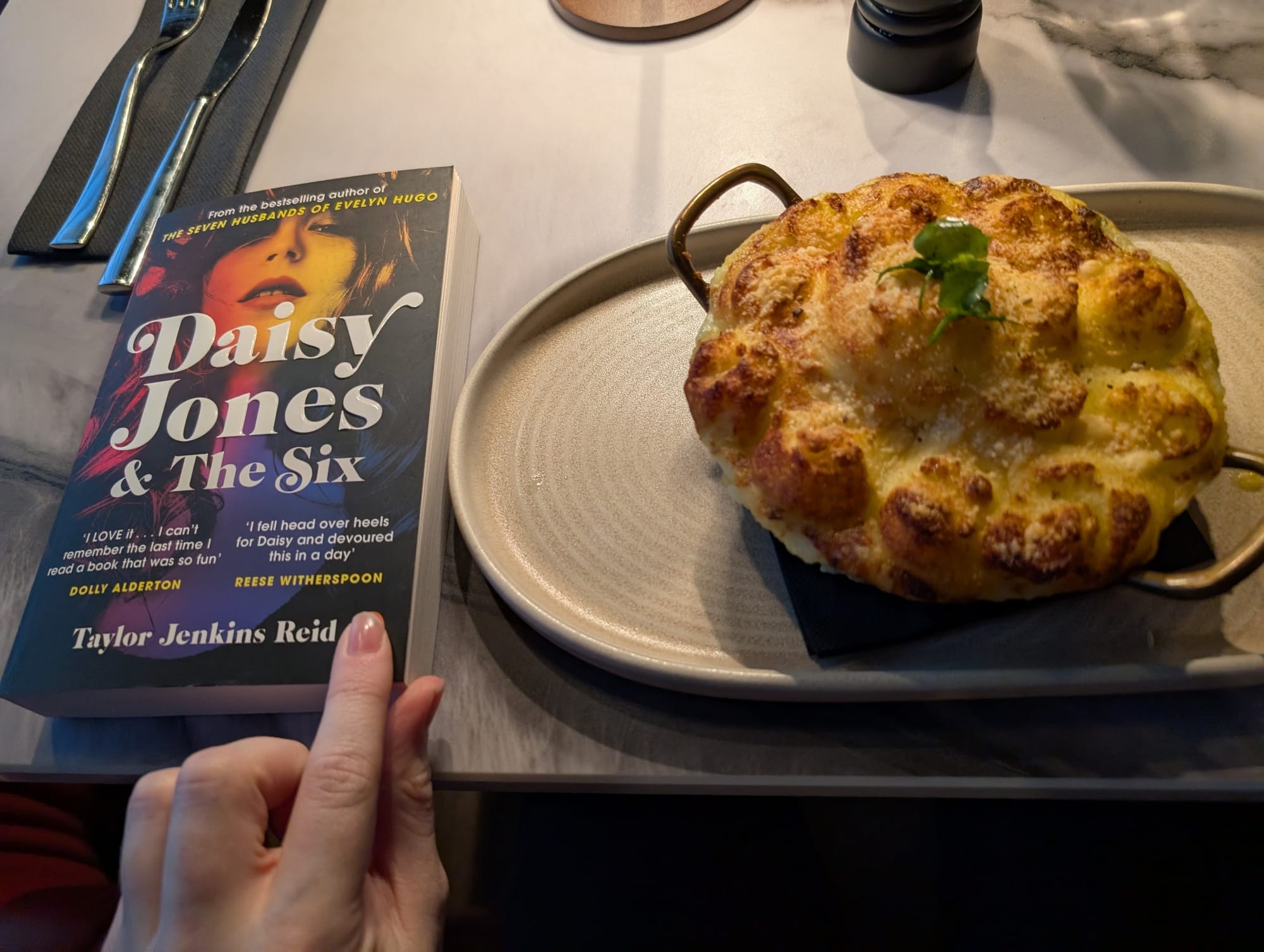
Tune in tomorrow for more of my Ireland adventures (a lot of napping). If you can't wait, consider signing up on Patreon to read the whole travelogue now and the rest of my writing one day early. Or if you'd rather not subscribe, send a one-time donation through Ko-Fi.
